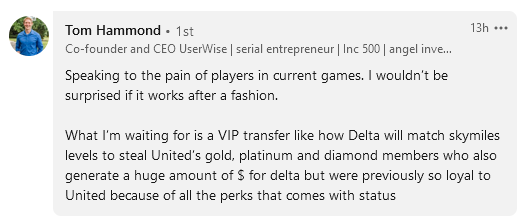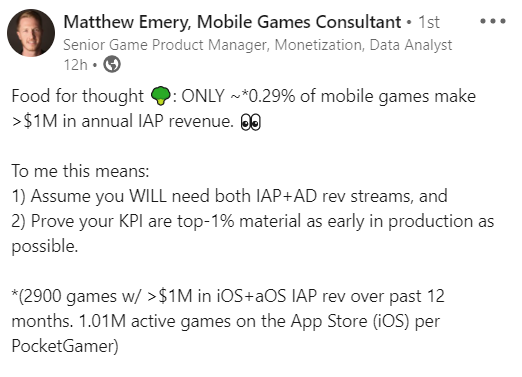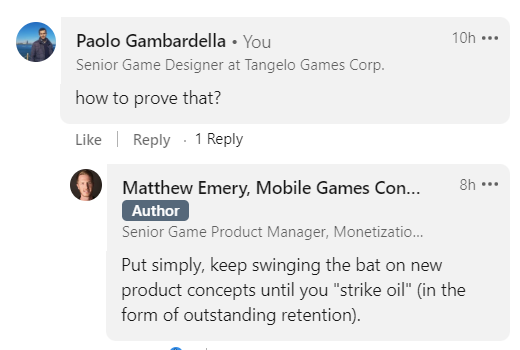When you get an interview you can demonstrate your skills in three ways:
- Taking a test
- Showing a portfolio
- Demonstrate the impact of your work
Often, you are required to do more than one thing at the same time. In fact, many companies ask you to take a test. Before, they review your portfolio and later they ask you about the impactful initiatives you lead in your previous jobs.
Impact is, by far, the most interesting thing. Still it’s not really easy to understand the specific impact of your designs. Many times (too many times) your designs are strongly influenced by the context. It may be some specific software constraint or also the green light process at which every initiative is submitted.
Still it is very important to learn how to estimate the right impact of your work. In data driven contexts, like f2p for example, you should also accompain your reasonings with concrete KPIs increment (in % to not break any secrecy).


